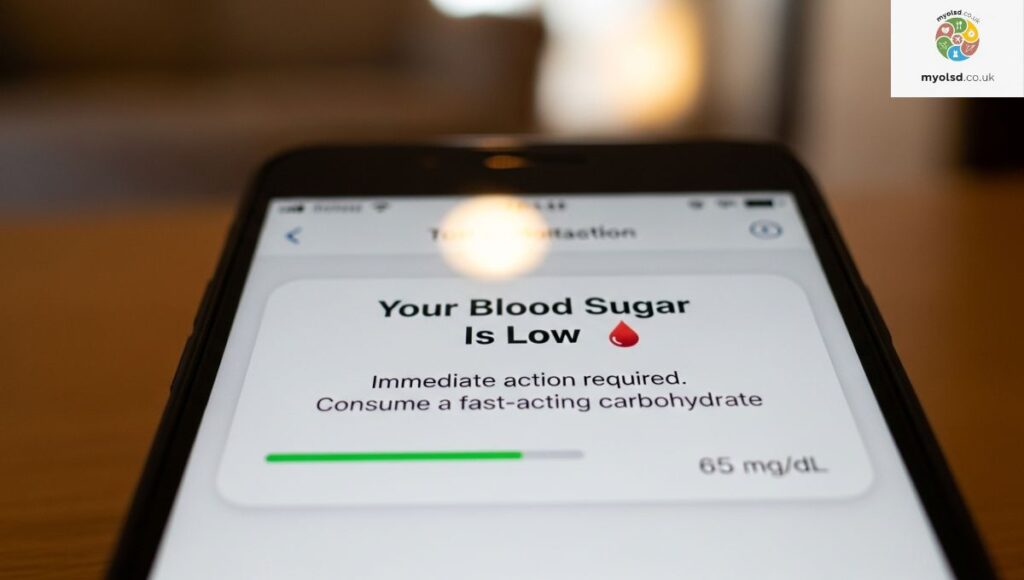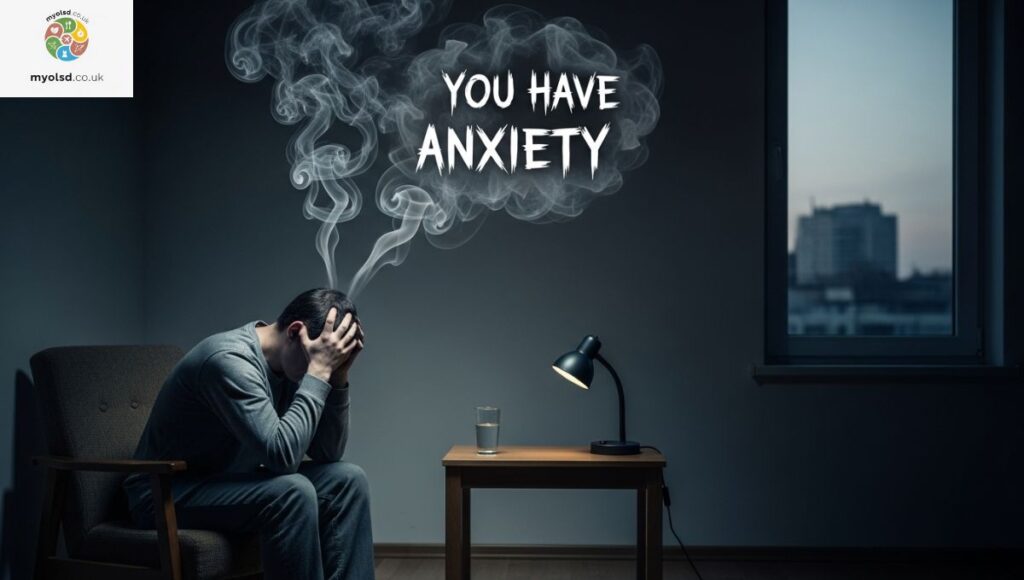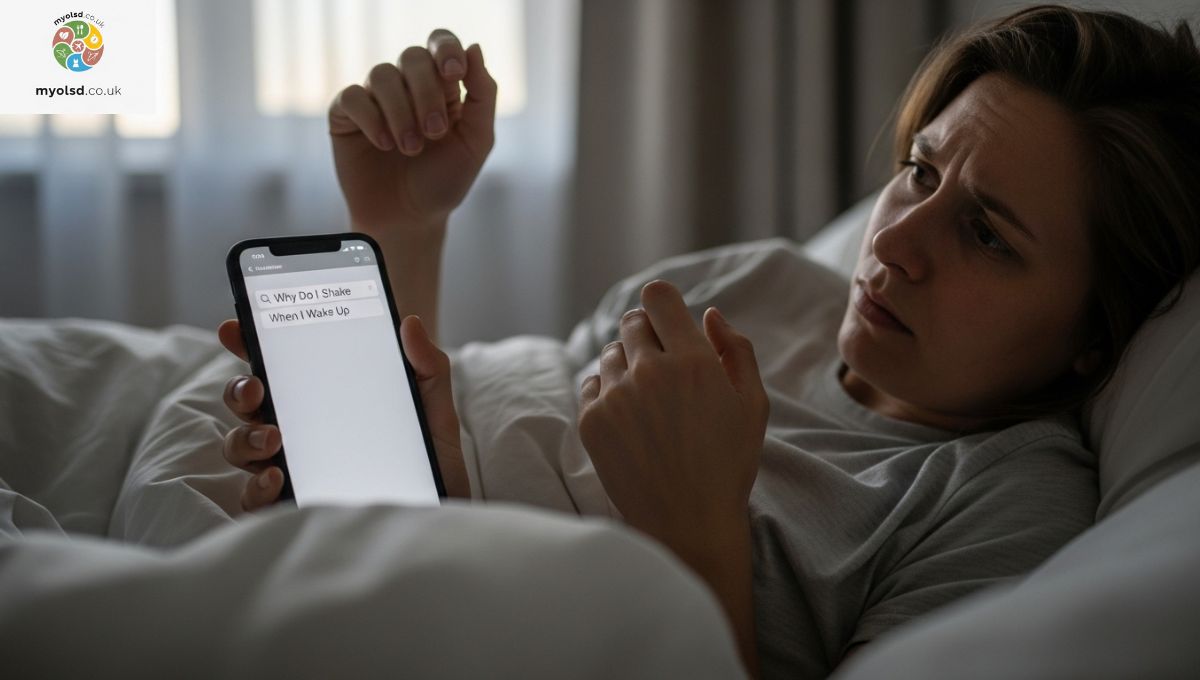Have you ever woken up in the morning feeling your hands or body tremble and wondered, Why do I shake when I wake up? It can feel scary, confusing, and even frustrating when you don’t know what’s going on with your own body. You’re not alone many people experience this strange sensation and worry it might mean something serious. The uncertainty can make mornings feel stressful instead of peaceful.
In this blog, we’ll break down the possible reasons why you might shake when you wake up and what you can do about it. From common causes like low blood sugar or anxiety to lifestyle factors and medical conditions, you’ll learn what could be triggering your symptoms. We’ll also share simple tips, when to seek medical advice, and ways to regain control so you can start your mornings feeling calm and steady.
1. Your Blood Sugar Is Low

One of the most common reasons people experience morning tremors is low blood sugar, or hypoglycemia. During sleep your body uses stored glucose to keep vital functions running. If you went to bed without a balanced dinner or your glucose levels drop too far overnight, you may wake up with tremors, sweating, or even blurred vision. People with diabetes are especially at risk, but anyone can experience a mild overnight glucose dip.
Low blood sugar symptoms often include shaking, fast heartbeat, dizziness, confusion, paleness, and extreme hunger. A quick fix may be eating a small portion of fast-acting carbohydrates, like fruit juice or glucose tablets. Over the long term, a balanced bedtime snack with complex carbohydrates and protein such as whole-grain crackers with cheese or peanut butter can help stabilize your levels through the night. If you take insulin or diabetes medications, it’s important to review your doses with your healthcare provider to avoid nocturnal hypoglycemia.
2. You’re Having a Panic Attack
Another common reason you might wake up trembling is a nighttime panic attack. These episodes can strike even when you’re asleep, leaving you with racing thoughts, heart palpitations, and trembling in the morning. The surge of adrenaline in a panic attack mimics symptoms of low blood sugar sweaty palms, pins and needles, fast heartbeat which can make it hard to tell the difference without medical input.
Nighttime panic attacks often happen when your nervous system is overstimulated by chronic stress, unresolved worries, or poor sleep hygiene. Practicing calming rituals before bed such as gentle stretches, meditation, or journaling can lower your stress hormone (cortisol) levels. Cognitive behavioral therapy (CBT) and grounding exercises are highly effective for reducing the frequency and intensity of panic attacks. If these episodes occur frequently or feel out of control, speak with a mental health professional for tailored support.
Read more Article:Why No Chocolate After Hiatal Hernia Surgery?
3. You Have Anxiety

While panic attacks are sudden, general anxiety can also cause morning shakiness. When you’re anxious, your body stays in a state of “fight or flight” even during sleep. You may toss and turn, wake up feeling restless, or notice subtle tremors when you first open your eyes. Chronic anxiety can also disrupt hormone balance and make you more sensitive to caffeine, alcohol, or certain medications.
Addressing anxiety often requires a combination of strategies. Regular exercise, mindfulness practices, and deep breathing can reduce baseline tension in your muscles and nervous system. Limiting stimulants like energy drinks or excessive coffee may also help. For some people, therapy or anti-anxiety medications prescribed under medical supervision are part of the solution. The key is to treat both the emotional and physical aspects of anxiety rather than ignoring them.
4. It’s a Medication Side Effect
Medications can sometimes be the hidden culprit behind morning tremors. Drugs such as albuterol (for asthma), corticosteroids, antidepressants, high-dose nicotine replacements, and stimulants like Ritalin or Sudafed may cause jitteriness or tremors, especially when taken late in the day. Even some blood-pressure or anti-anxiety drugs can lead to rebound symptoms, including shaking, if a dose is missed.
If you’ve recently started, stopped, or changed the dose of a medication and noticed new tremors, talk to your doctor or pharmacist. They can review possible side effects and suggest adjustments. Never stop a prescription on your own, as abrupt withdrawal from some medications or substances (including chronic alcohol use) can worsen tremors and even become dangerous. Instead, work with a healthcare professional to taper or find alternatives safely.
5. You’re Drinking Too Much Caffeine

Caffeine is a stimulant that can linger in your system for hours. Energy drinks, coffee, tea, chocolate, and even some soft drinks or supplements can raise your heart rate, increase adrenaline, and interfere with restful sleep. Drinking large amounts of caffeine especially in the afternoon or evening can lead to restless nights, vivid dreams, and trembling when you wake up.
If you suspect caffeine is behind your morning shakiness, try reducing your intake gradually. Replace late-day coffee with herbal tea or water, and limit energy drinks altogether. It may take a week or two for your nervous system to reset, but most people notice a big improvement in sleep quality and morning calm after cutting back. Staying hydrated with plain water and eating a balanced diet also supports your nervous system and blood sugar stability.
When to See a Doctor
Occasional mild tremors after waking aren’t always a sign of something serious. But persistent, severe, or worsening symptoms deserve medical attention. You should see a doctor if you experience chest pain, intense dizziness, blurry vision, or irregular heart rhythms along with your morning shaking. These could signal a heart problem, neurological disorder, or other urgent medical issue.
A healthcare provider can perform blood tests to check your glucose levels, thyroid function, electrolyte balance, and hormone levels. They may also review your medications, sleep patterns, and mental health. In some cases, referral to a neurologist or sleep specialist helps rule out conditions like nocturnal seizures, Parkinson’s disease, or essential tremor. The goal is to identify any underlying problem and create a personalized treatment plan.
The Takeaway
Waking up feeling shaky is a common but unsettling experience. Whether it’s low blood sugar, anxiety, a panic attack, medication effects, or too much caffeine, the key is identifying your personal triggers. Keeping a simple symptom diary noting what you ate, your stress level, medications, caffeine intake, and sleep quality can reveal patterns you might not see otherwise.
By understanding the reasons behind why do i shake when i wake up, you empower yourself to take action. Small lifestyle changes like improving your sleep hygiene, eating a balanced dinner, practicing relaxation exercises, and moderating stimulants often make a big difference. When symptoms persist or worsen, consulting a healthcare professional ensures you’re not overlooking a more serious condition. With the right approach, you can wake up feeling steady, calm, and ready to face your day.
FAQS
Why do I wake up feeling so shaky?
You may feel shaky due to low blood sugar, anxiety, disrupted sleep, or stimulant effects.
How do you get rid of morning tremors?
Eat a balanced meal, reduce stress and caffeine, stay hydrated, and get medical advice if it persists.
How to stop morning shivers?
Warm up gradually, eat a light snack, breathe slowly, and address any underlying health or anxiety issues.
Why do I feel jittery and shaky?
Jitteriness often stems from anxiety, caffeine, low blood sugar, or certain medications.
What deficiency makes you feel shaky?
Deficiencies in B vitamins, magnesium, or iron can contribute to shakiness.
Does low blood pressure cause shaking hands?
Yes, low blood pressure can reduce blood flow and sometimes cause hand tremors or weakness.


1 thought on “Why Do I Shake When I Wake Up? Causes and Solutions”